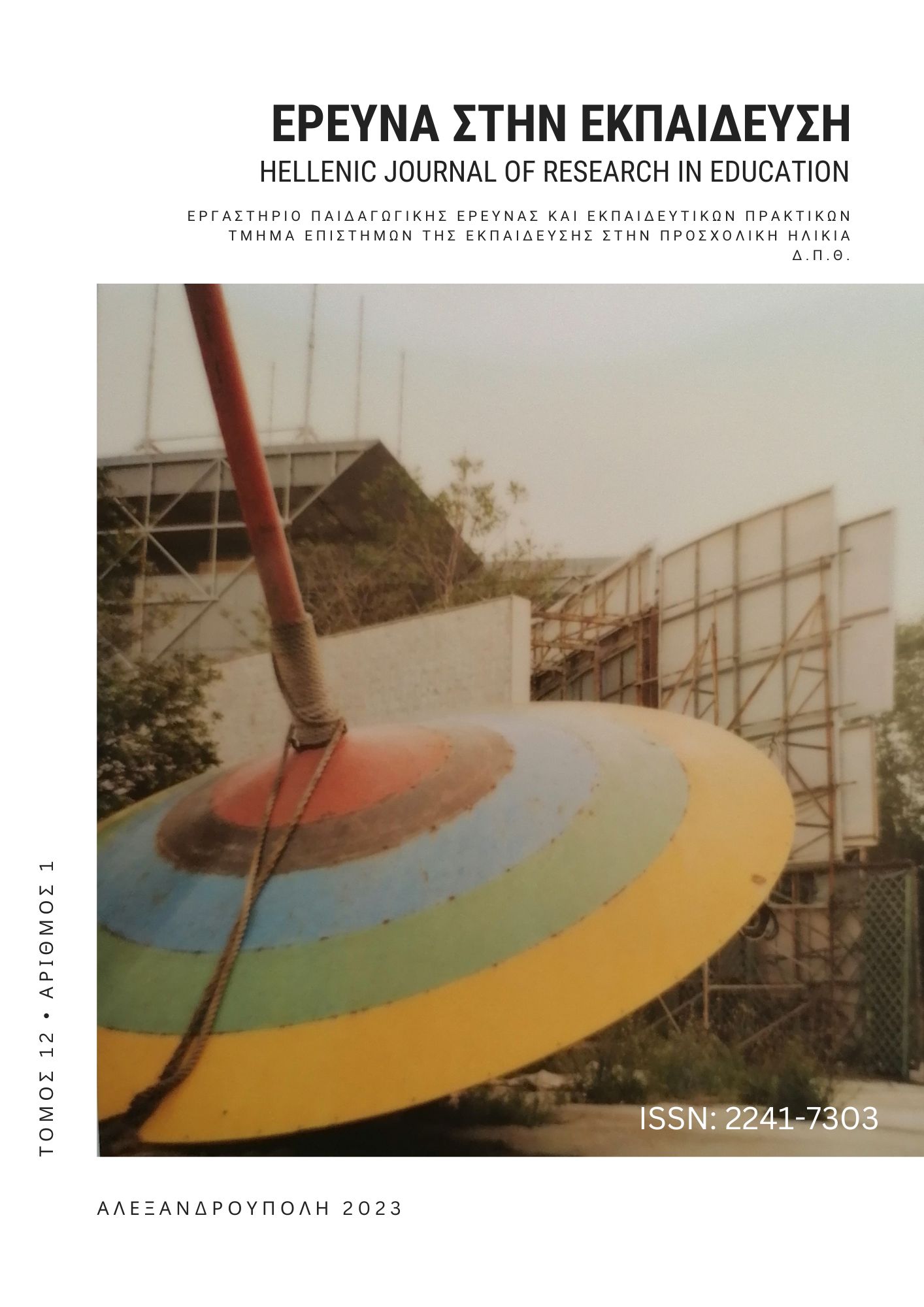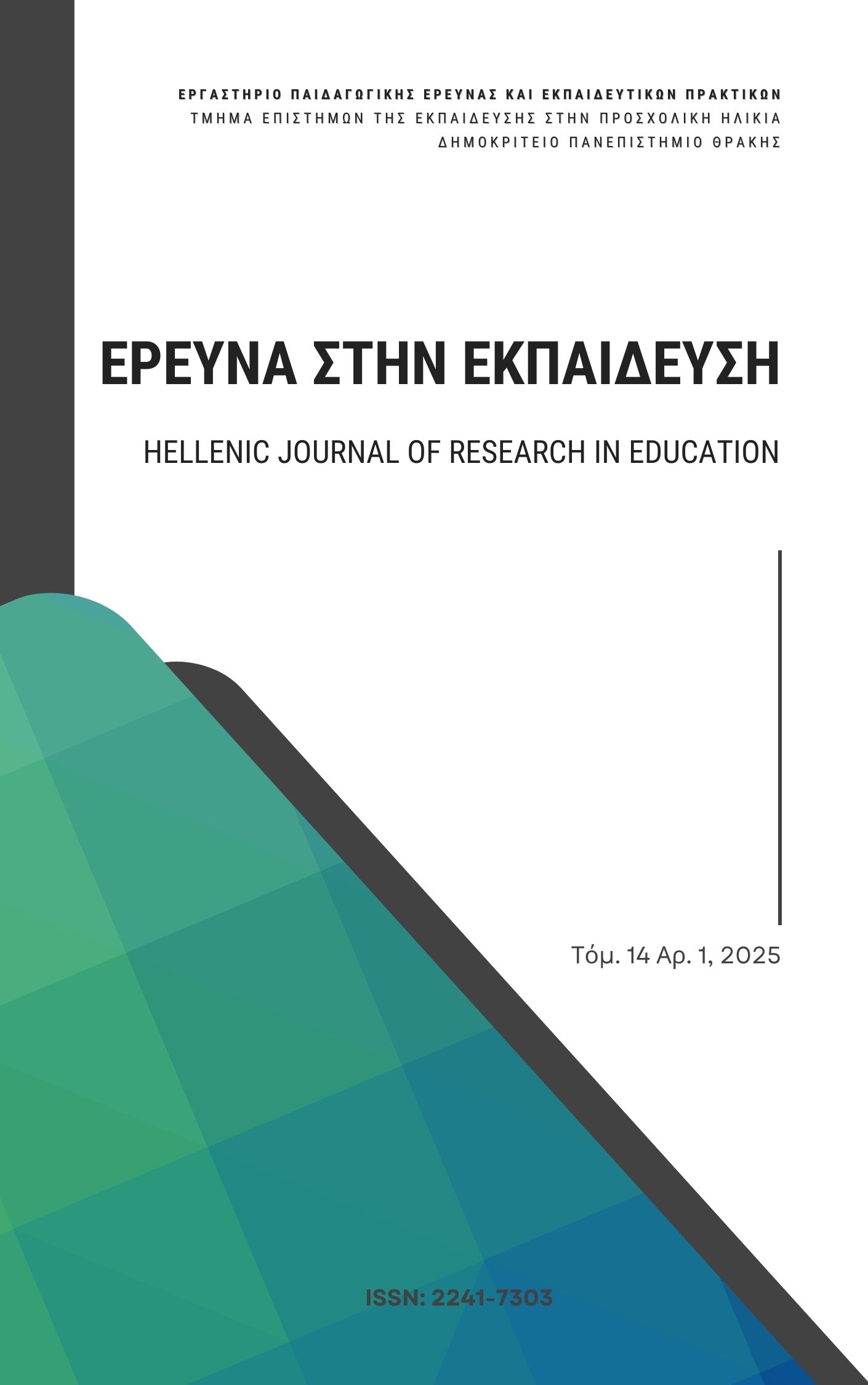The use of narratives in the evaluation of prospective teachers' training results - The "Most Significant Change" technique

Abstract
The article explores the potential of a narrative research of prospective teachers' on the outcomes of a Teaching Practice programme. The research was qualitative and was conducted with the participation of 73 prospective teachers from the Department of Theology of the National and Kapodistrian University of Athens during the year academic year 2021-2022 in two phases. The results of the practical training of prospective teachers in a school environment, when it is carried out through individualized guidance and supervision (mentoring), were studied and the use of a narrative research technique, the "Most significant change", in the evaluation of the results of their training was examined. This technique was used to collect and analyse the data at the middle and end of the Teaching Practice. Student teachers were asked to write down the most significant change they had personally experienced through the Teaching Practice experience. A content analysis of all change narratives was conducted with the input of independent reviewers, separately for each of the two phases of the research process. The data analysis shows that the outcomes from the prospective teachers’ practicum training are related to the academic aspect of teaching and its theory, while at the same time outcomes related to the formation of an educational professional identity emerge. The research confirms the scientific reliability of using narrative research approaches (most significant change technique) in evaluating the outcomes of a similar educational interventions, and highlights important criteria for the future design of Teaching Practice programmes aimed at training prospective teachers.
Article Details
- How to Cite
-
Koukounaras Liagis, M., & Papaioannou, M. (2023). The use of narratives in the evaluation of prospective teachers’ training results - The "Most Significant Change" technique. Hellenic Journal of Research in Education, 12(1), 98–117. https://doi.org/10.12681/hjre.34064
- Issue
- Vol. 12 No. 1 (2023)
- Section
- Articles

This work is licensed under a Creative Commons Attribution-NonCommercial-ShareAlike 4.0 International License.
Authors who publish with this journal agree to the following terms:
- Authors retain copyright and grant the journal right of first publication with the work simultaneously licensed under a CC-BY-NC-SA that allows others to share the work with an acknowledgement of the work's authorship and initial publication in this journal.
- Authors are able to enter into separate, additional contractual arrangements for the non-exclusive distribution of the journal's published version of the work (e.g. post it to an institutional repository or publish it in a book), with an acknowledgement of its initial publication in this journal.
- Authors are permitted and encouraged to post their work online (preferably in institutional repositories or on their website) prior to and during the submission process, as it can lead to productive exchanges, as well as earlier and greater citation of published work (See The Effect of Open Access).



